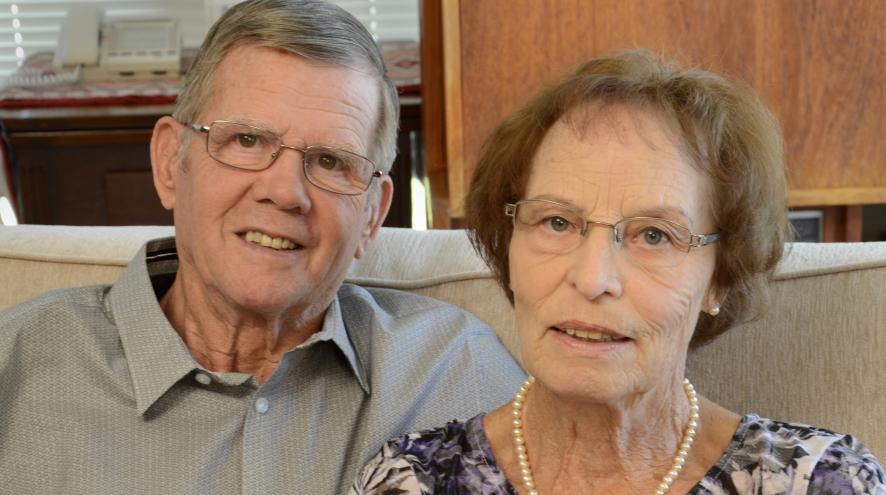Dementia in the days of COVID-19: Trudy's story
During this time of increased isolation due to the COVID-19 pandemic, many people living with dementia and the people who care for them are disconnected from support networks and facing unexpected challenges. It is the Alzheimer Society of B.C.’s mission to ensure that no one walks alone on the dementia journey. Now and in the coming weeks, caregivers and people living with dementia will share their everyday challenges and successes as a part of our Dementia in the days of COVID-19 series.

Trudy's story
Last spring, it was easy for Trudy Kotzian to stay optimistic as she cared for her husband Klaus, who lives with Alzheimer’s disease. Trudy was an inspiration to other caregivers, ensuring her husband’s needs were met and making time for her own self-care. Klaus visited friends and participated in programming with Trudy, who continued her yoga practice in their time apart. By taking care of yourself, Trudy told other caregivers, you ensure you’re able to care for your partner. Trudy and Klaus were even honoured before their community at the 2019 IG Wealth Management Walk for Alzheimer’s in Penticton.
This year is different. Since the COVID-19 pandemic began, the activities the pair relied on stopped, leaving Trudy struggling to provide care on her own and Klaus struggling to understand why his world has changed.
“We all know we are in it together and we have to fight it together,” Trudy says. “But everyday life is not at all that easy to handle.”
Following the physical distancing guidelines is especially hard for some people living with dementia. Klaus doesn’t understand why he can’t go on regular trips to the store, see friends or do so many of the other activities that form the routine he lives by.
“Why is the shopping centre closed?” Trudy says, recounting the list of daily questions. “Why does no one come to visit? Why was our trip cancelled? Why can’t I hug you? Why do we have to stand so far apart from one another? But most of all, the question I hear over and over again is: when can I go to the barber? To him, in his now so cocooned life, having a haircut is very important and I do not dare to try to do it for him.”
Trudy misses the days when Klaus would attend an adult day program or when a good friend would take him out for lunch and a game of pool. These were the times Trudy could venture outside to enjoy her own activities. She did yoga and line danced for physical fitness, as well as for the much-needed social contact it provided away from her role as a caregiver. She also misses Minds in Motion®, the Alzheimer Society of B.C.’s social and fitness program for people living with dementia and a care partner, which the two attended weekly. Trudy has welcomed phone calls during the pandemic, but they’re no replacement for seeing someone smile or giving them a hug. Trying to do the best is the best thing to do, she says, but it isn’t easy.
“By nighttime,” Trudy says, “I am exhausted from answering the repeated questions that come my way all day long. Nice thing is, that a good sleep replenishes the lost energy and the lovely sunny mornings I wake up to every day make me thankful again for the life I have, and the life that I can still share with my husband.”
On May 31, people across Canada will join together to raise awareness and raise funds – and show that no matter what the world looks like, Canadians are united to support people affected by dementia. Register and fundraise for the IG Wealth Management Walk for Alzheimer’s online and join Alzheimer Societies across Canada to celebrate online on May 31 starting at 9 a.m. PDT. You can watch the event anywhere you have an internet connection.
If you have questions or concerns about dementia or someone living with dementia in your care, call the First Link® Dementia Helpline. Monday to Friday from 9 a.m. until 8 p.m. in English (1-800-936-6033) and from 9 a.m. until 4 p.m. in Cantonese or Mandarin (1-833-674-5007) and Punjabi (1-833-674-5003).
To explore the rest of our "Dementia in the days of COVID-19" stories, visit: alzbc.org/COVID-stories.
